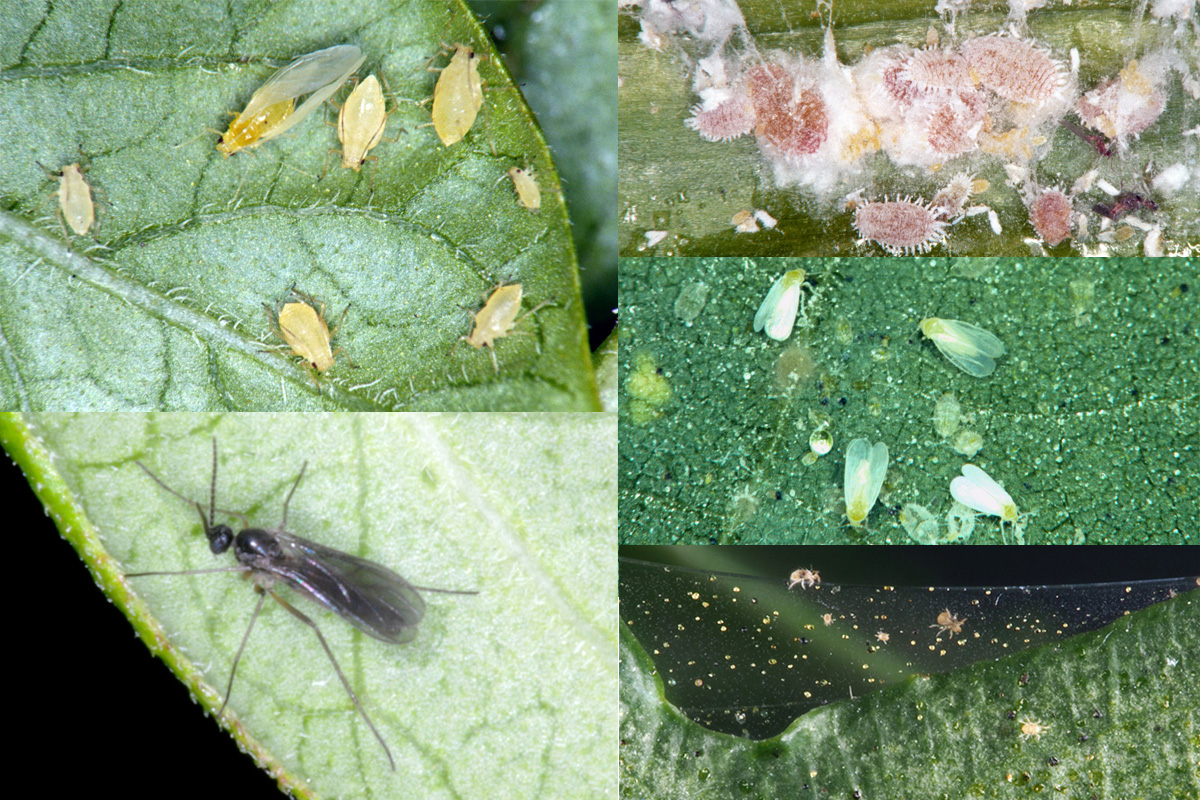
By Kait Chapman, Extension Educator in Lancaster County
As we eagerly anticipate spring and the outdoor planting season, some of our indoor plants have become home to insects and their relatives. These plant pests often come into the home on newly purchased plants or on plants that have spent the summer outdoors. Some of these pests may go undetected until houseplants begin to look unhealthy.
CONTROL
When you notice a pest on a houseplant, your first step should always be to isolate the plant from others. This will help prevent the pest from moving to other, healthy plants in the home. Infested plants should remain separated until the infestation is eliminated.
Aphids, mealybugs, whiteflies and spider mites all feed on plant sap, causing yellowing, stunted growth, distorted leaves and, occasionally, plant death. Spider mites additionally cause speckling on leaf surfaces and silky webs in heavy infestations. Infestations can be controlled by:
• Removing or “squishing” individual insects.
• Spraying plants, including the underside of leaves, with soapy water or an insecticidal soap once-a-week until the infestation is under control.
Fungus gnats are more often a nuisance to people than a plant pest. The small black adult gnats are found near the soil surface of over-watered plants. The white larvae will occasionally feed on plant roots in addition to organic matter in the soil. To control fungus gnats:
• Allow the soil of the houseplant to completely dry in-between watering to kill larvae.
• Place yellow sticky cards around infested plants; cards are available at garden stores.
PREVENTION
Stressed houseplants tend to be more susceptible to pest infestations, so be sure to provide your plant with the best possible growing conditions including adequate light, nutrients and a proper watering schedule. Always check newly purchased plants for signs of pests.
For pest identification or control recommendations, contact me at 402-441-7180 or kchapman13@unl.edu.